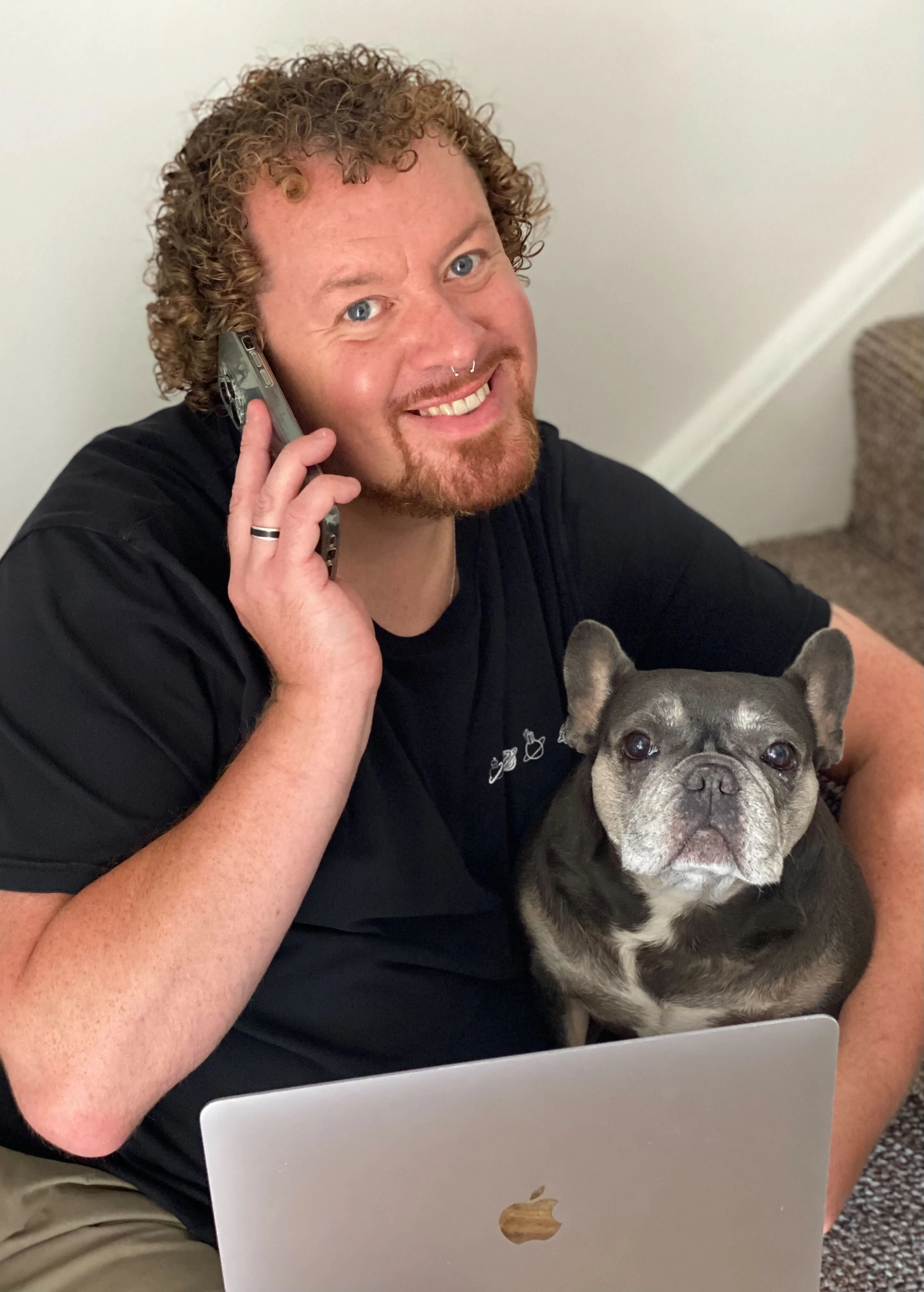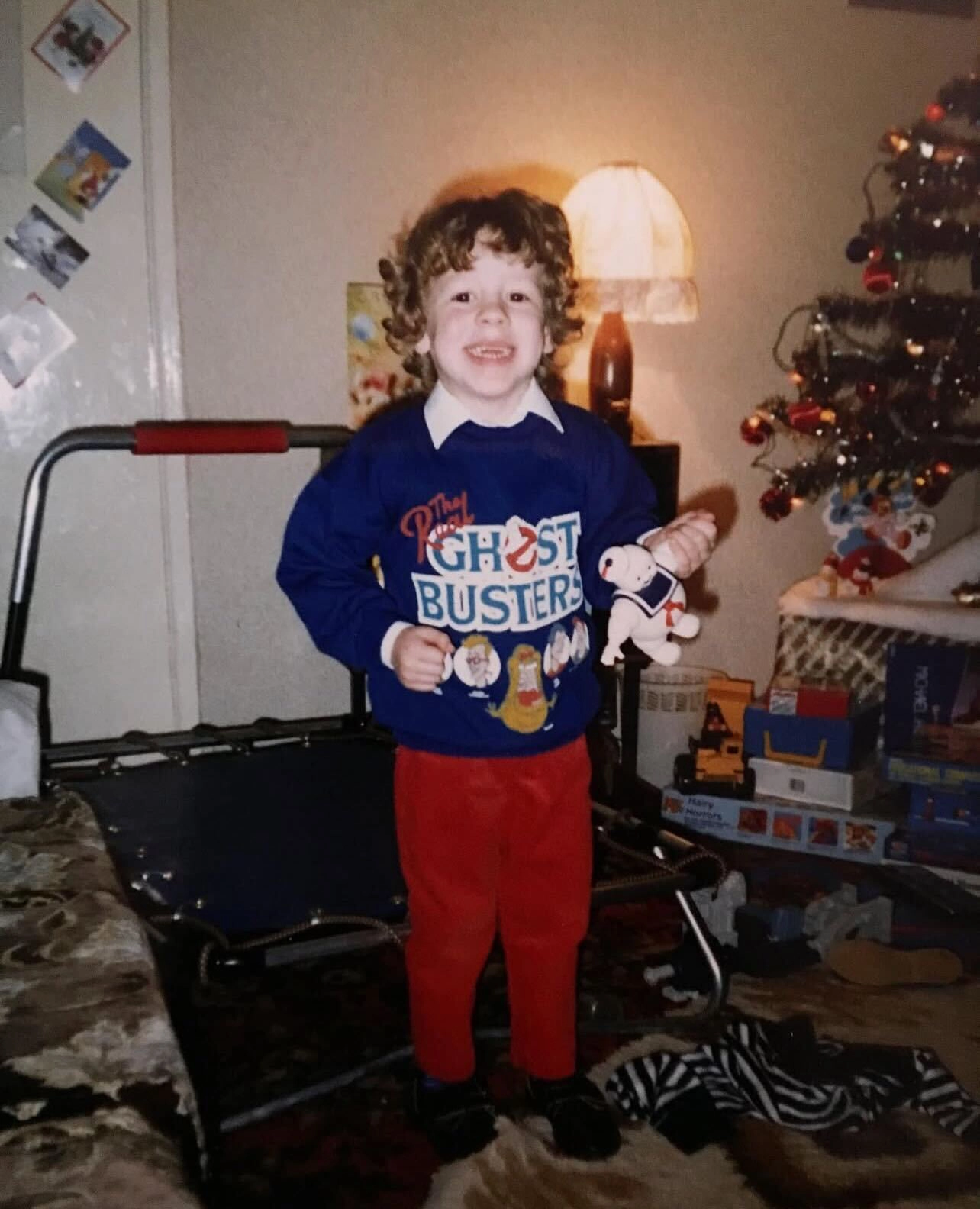I was too shy to serve customers – now I’ve built a 25-year career supporting them
About this post
Thinking about a career in customer support? Meet Martin: Urban’s senior customer support manager with over 25 years of experience. In this blog, he shares what it takes to thrive in the role – and debunks some common myths about the industry.
Posted by
Louisa from UrbanTags
- Behind the scenes
- People
Share
Meet Martin – Urban’s senior customer support manager with 25+ years in the industry. From a shy teen serving fast food to leading a team of six, he’s built a career on empathy, resilience and always championing the customer voice.
Based in Barry Island with his partner and their dog, Miss Piggy, Martin brings warmth and inclusivity to everything he does.
We caught up with him to talk career leaps, what makes great customer support and why it’s one of the most important (and misunderstood) roles in a business.

When you were growing up, what did you dream of becoming?
As I’m an 80s/90s child, I grew up with all the classic movies of that era – E.T., The Goonies, Jurassic Park – so one thing I most certainly wanted to be, due to my love of the franchise, was a Ghostbuster. I was obsessed! I had all the toys and the proton pack, so I was sure this was going to be my career path.
When I started to grow up, I wanted to become an artist of some sort. I was (and still am) very creative – I love to draw, paint and make things. I still create paintings and drawings today, and I’ve even taken on a few commissions over the years. So in a way, I did follow that artistic path, not only through my artwork but also as a photographer in my spare time.

What was your very first job in customer support?
My first real job in customer support, after being a pot washer and a paper delivery person, was working for a finger-lickin’ good brand! I was 16, my brother's girlfriend was the manager at the time, and she got me a job while I was in college.
I was thrown in at the deep end – I had never served any customers at this point and was so shy. I had my first training on the till after two days of being there – it helped me gain an idea of what makes good customer support, and the challenges of the role.
You now lead a team of six as senior customer support manager – what were some of the key steps in your journey to get here?
I started out life at Urban as a customer support rep and worked my way up from there.
My journey started in my home town where our customer services used to be based. Within six months of starting, the opportunity came to work in our London offices with the newer support reps. I made a bold choice to up sticks, sell everything in my home and move to the big smoke.
Coming from a small town and moving to a big city – especially London – gave me the confidence to ask questions and refuse to settle for average. I’ve always championed being the voice of the customer support team, as I believe this perspective can sometimes be overlooked in business decisions.
That advocacy has shaped me into the leader I am today. The trust and faith my management team has placed in me is something I wear as a badge of pride, and I never take this role for granted.
If you could go back in time, what piece of advice would you give your younger self at the start of your career?
Back yourself more.
I was always too worried that I didn't fit in and thought that becoming a manager was far, far away from my reach. I didn’t go down the route of gaining higher qualifications and degrees to get to where I am today – I did it through trust, determination and always standing up for what’s right, while balancing this with a clear understanding of business needs.

What’s the most rewarding part of your job?
Hands down, it’s seeing my team thrive. Watching my team members being promoted into new roles within the business – including moving into management – is incredibly rewarding. Seeing people who joined my team, who I’ve trained and nurtured, go on to take those kinds of steps really makes my soul happy.
The team I currently have are some of the most loyal, vocal and lovely team members a manager could wish for and I am constantly their cheerleader.
In your view, what are the top three qualities someone needs to succeed in customer support?
Empathy, resilience and clear communication.
You need to be able to put yourself in the shoes of your customer to be able to truly understand any issues that arise, good or bad. Of course, there will be times when that alone isn’t enough, but having the strength to push through and be the support others need shows a real commitment to resolving problems.
Showing understanding, and clearly communicating the steps needed to overcome the issue, is the cherry on the cake for me. If you demonstrate all three, you’ll always have my backing.
When hiring for customer support roles, what types of previous experience do you look for?
I would say that I’m less focused on the previous titles held and more interested in the transferable skills they have to offer.
They would need to have worked with people, handled pressure or adapted quickly to change (within start-ups, change is a given and happens regularly!).
Roles within retail, admin and hospitality are the usual areas of interest, but what matters most is how someone thinks, how they handle feedback and how they show up in a team setting.

What’s a common misconception about customer support that you’d like to challenge?
This is a big one for me. When anyone says "Working in customer support is really easy and more of an entry level job", it couldn’t be further from the reality I’ve experienced – both as a support rep and a manager.
The truth is, great customer support needs emotional intelligence, strong systems handling and in some instances, multiple systems awareness (plus accountability). As a frontline team member in any business, you need to be fully up to speed on updates, new services and product launches – and be able to clearly pass that knowledge on to customers.
But also, on top of those skills, the team serves as the voice of the customer, providing feedback that can help shape the direction of the business. So all in all, it’s far from an entry-level role.
What’s your take on the phrase, “the customer’s always right”?
This is definitely a controversial one and as a Leo, I’ll say it upfront: I don’t fully agree with it.
It depends on the situation. I often ask myself two key questions when handling customer concerns: Did the service deliver what was advertised? Was the customer expecting something that wasn’t actually promised?
It then becomes obvious whether the customer is right or if there's simply a mismatch to their expectations. Of course, building customer loyalty and delivering the best service are important factors, but so is protecting the integrity of your service offering.
If you constantly bend the rules or go beyond what was promised just to satisfy a customer, it becomes harder to maintain consistency and keep within the boundaries in the future.
So while empathy and flexibility are key, I also believe in standing firm when needed. As always, balance is everything.
How has the world of customer support changed during your career – and where do you see it going next?
It’s evolved massively. The world of customer support has changed technologically over the years, especially with the rapid rise of AI and automation. I’m fully aware that the advances are here and are only getting more sophisticated – and there’s no denying that AI can streamline processes and boost efficiency.
But when it comes to truly meaningful, personal support, having a real person on the other end is the best way forward. You need a good blend of AI and people. AI to help speed up processes, but people who have that real human connection when it counts with our customers.
